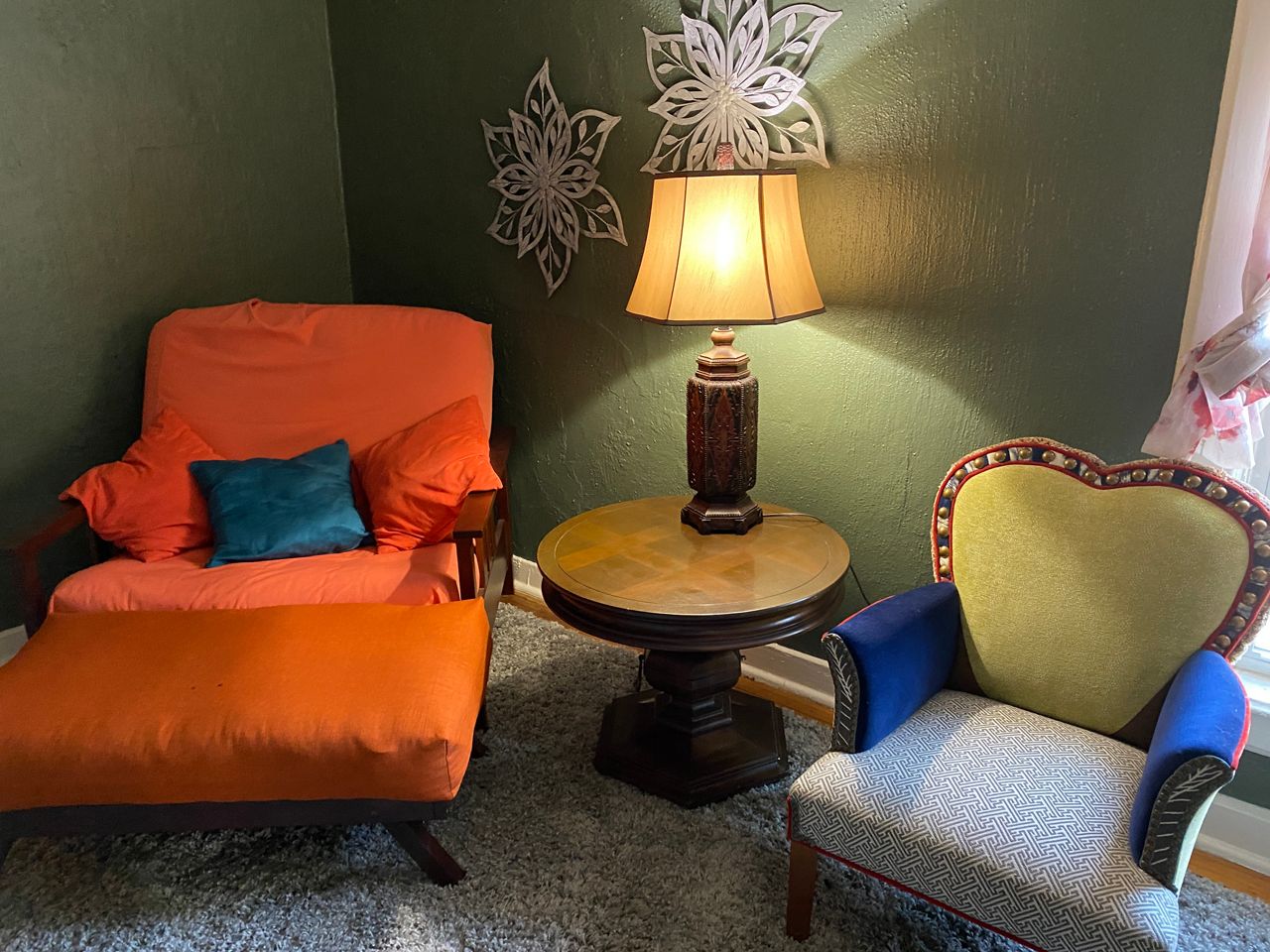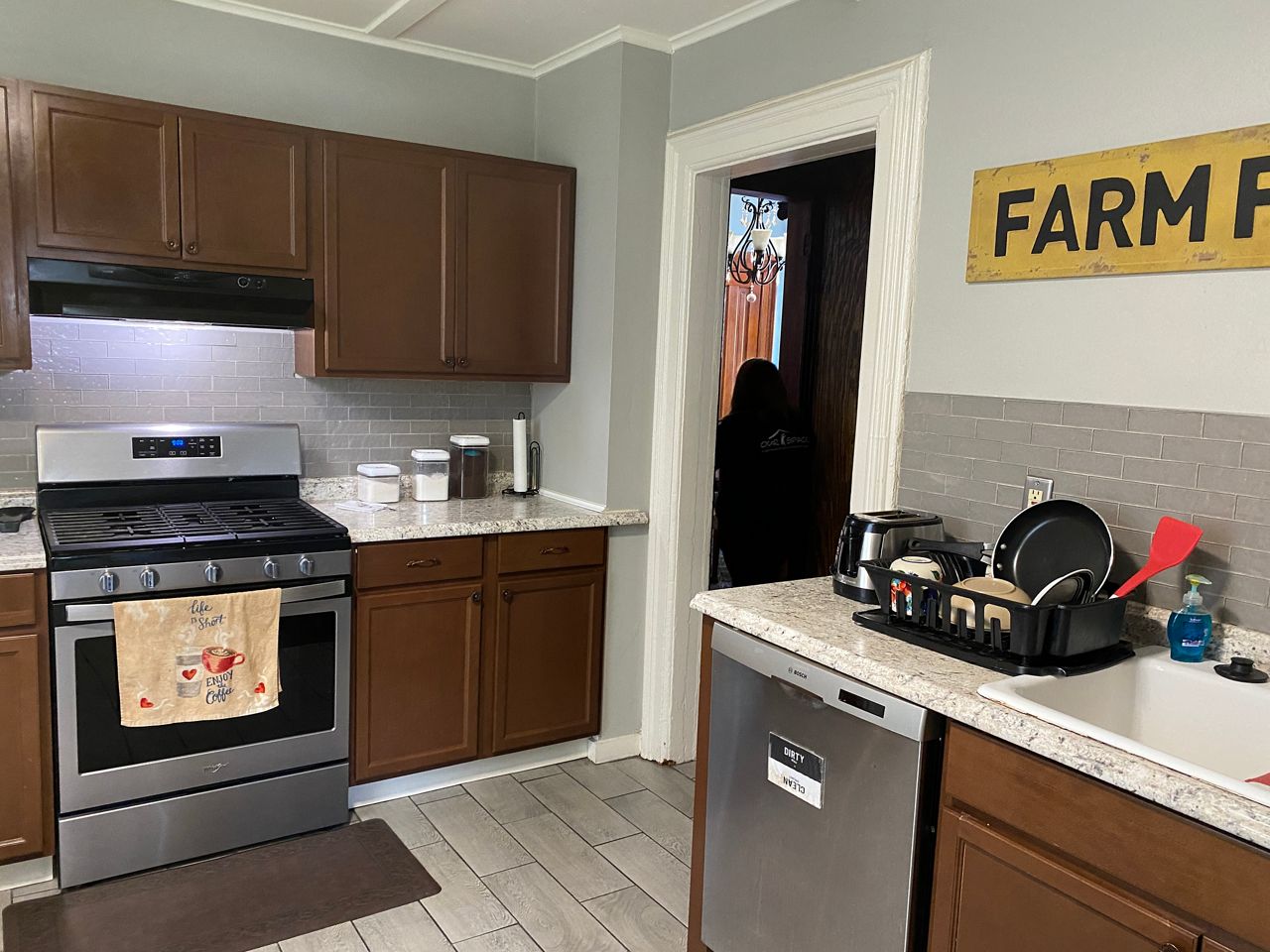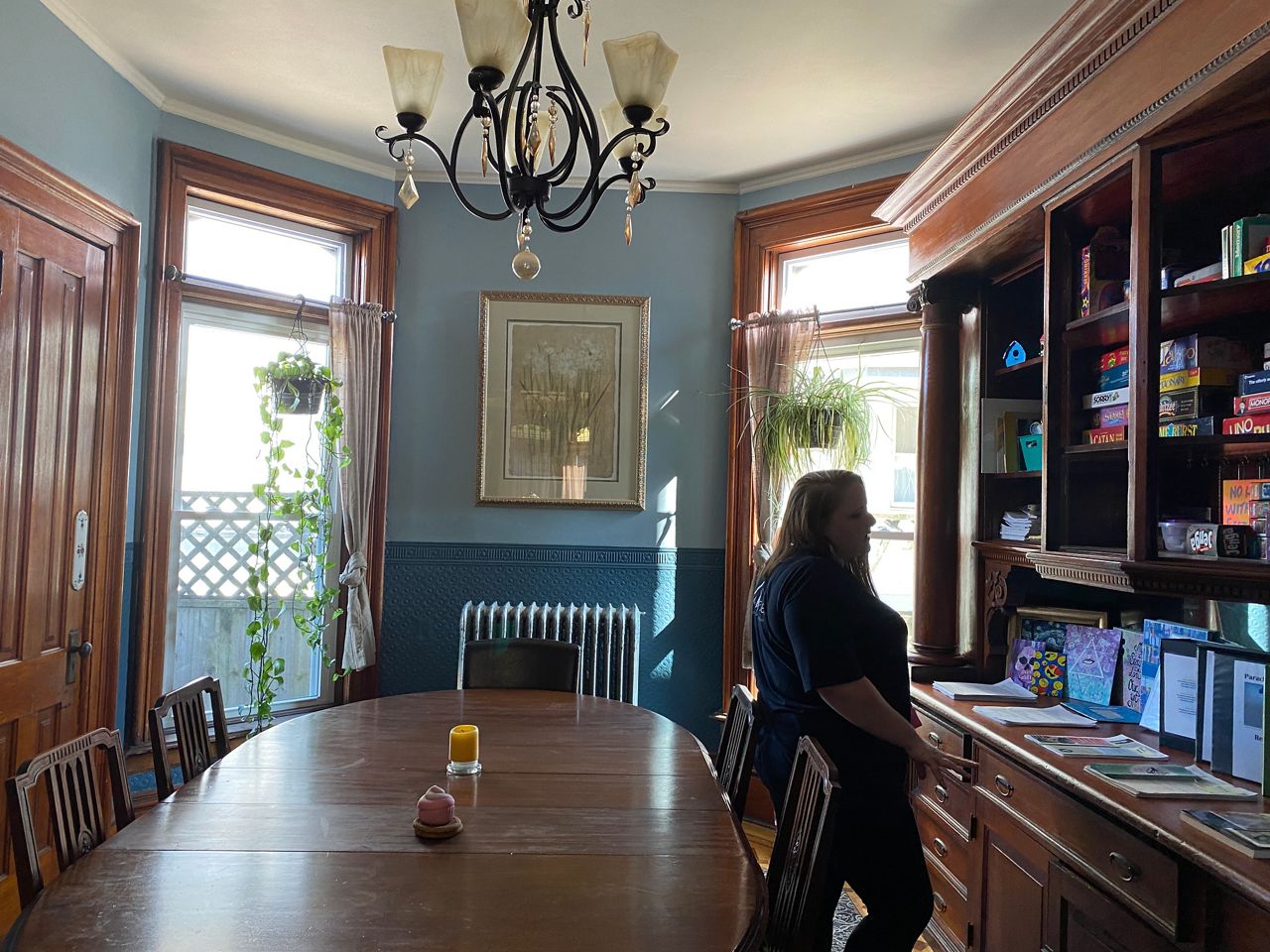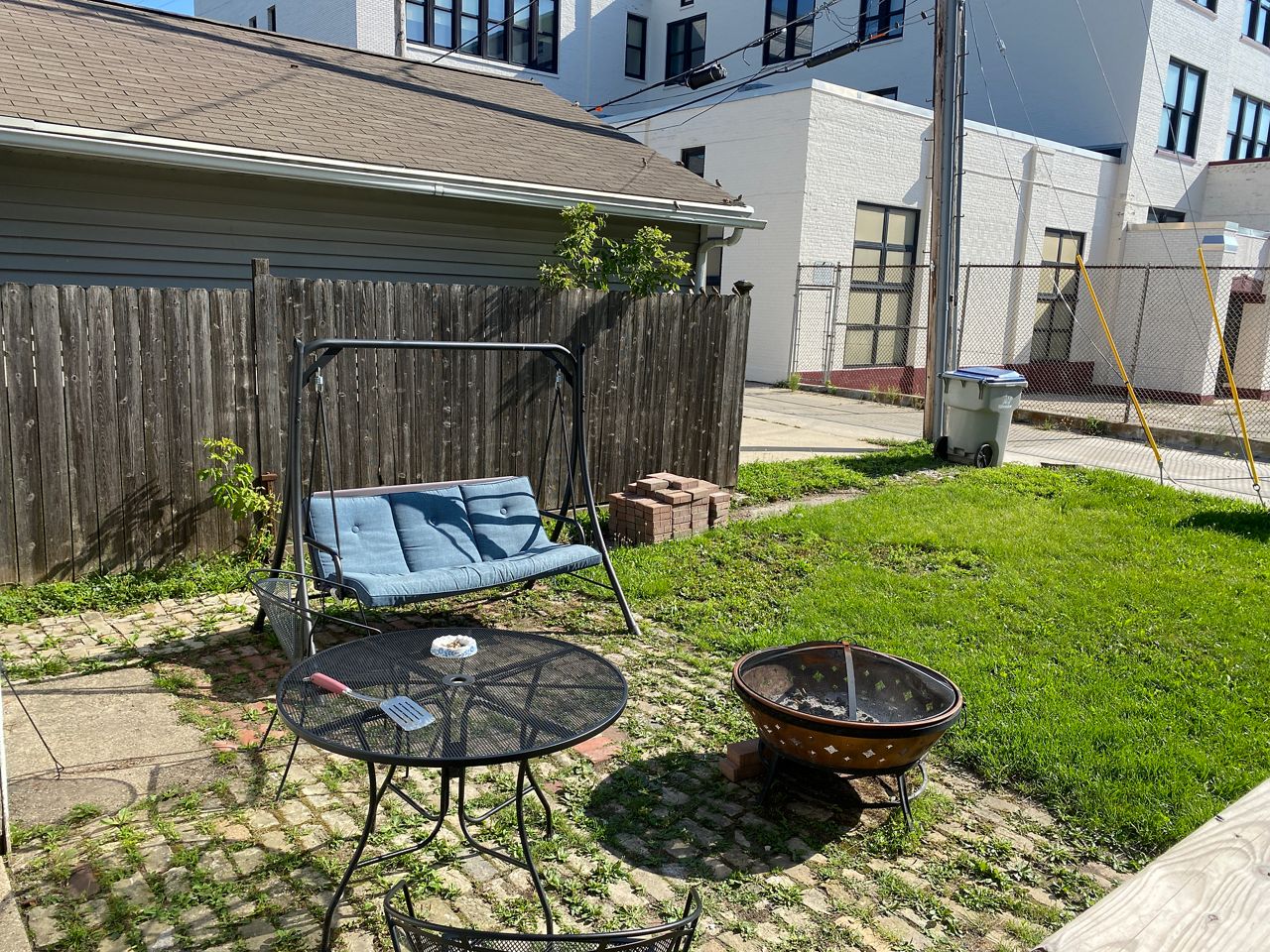This story discusses mental health and addiction.
MILWAUKEE — On one sunny morning in Milwaukee, guests at the Parachute House peer-run respite are choosing their own paths toward recovery.
One sprawls on a couch in the living room, listening to music; another rolls into the kitchen to grab breakfast. The shelves are lined with stacks of board games, binders full of community resources and colorful artwork created by former guests.
The Parachute House offers support for people struggling with emotional distress, mental health problems or substance abuse. But unlike other rehab facilities or group homes, the peer-run respite empowers guests to direct their own recovery, said Jennifer Zuelke, the house’s lead peer specialist.

“A lot of people who get integrated in the mental health system get accustomed to people doing things for them … or thinking they need to adhere to someone else's routine,” Zuelke said. “This breaks that cycle and lets people know that they have enough, and they can take back their power.”
The Parachute House is part of a growing movement in Wisconsin to offer a different type of support for mental health and substance abuse.
In the peer-run respite model, guests can check in for a voluntary, free stay of up to a week. During that time, they’ll still be able to come and go for work, school or other responsibilities — and they’ll be supported by staff who have firsthand experience with similar challenges.
“We don’t look at trying to fix people. We just want to relate with people and connect with them,” Zuelke said. “Because that’s what we believe is the opposite of all of the mental health crisis and addiction — is connection.”
* * *
The Parachute House — which is operated by local nonprofit Our Space — has hosted more than 550 stays since opening its doors in early 2019, Zuelke said.
As the first (and still the only) peer-run respite to open in the city, the house is an important alternative to an emergency room visit or hospital stay, said Our Space executive assistant Melissa Wisniewski.
“Milwaukee needed this terribly,” Wisniewski said. “Peer support is so vital in people’s recovery.”

This year alone, the home has accommodated more than 150 stays, managing to stay open during the pandemic with some extra precautions.
And earlier this summer, the Parachute House joined the growing list of peer-run respites funded by the state Department of Health Services. That means the team can serve any Wisconsinites in need, even beyond Milwaukee, said Mattie Kon, director of marketing and development for Our Space.
The goal is to create an organic, non-clinical space — one where guests feel like they’re walking into a “warm hug” when they show up, Wisniewski said.
The physical location helps with that: It’s an 1890 Victorian home, complete with original woodwork and plenty of community spaces to gather. Each bedroom comes fully equipped with an air conditioner, oil diffuser and sound machine, plus a locked door so that guests can have privacy, Zuelke said.
The small scale of the respite also helps keep things flexible. With only five guests at a time, the staff can respond to what each person needs in a given day — whether that’s a heart-to-heart conversation, a relaxing activity, or an alternative healing method like sound therapy or reiki.
“We try to engage the energy of the house, and how people are feeling,” Zuelke said. “We’re able to pay attention to individual needs.”

Aaron, one of the guests at the Parachute House, said staying at the respite was like seeing a concert at a smaller venue. “It’s a little bit more intimate,” he said.
Plus, he said he appreciated getting to relate with peer supporters who aren’t embarrassed to talk about their own histories and get on the same level with guests.
“This is my place when I need somewhere to go,” Aaron said.
* * *
Justine Balistreri, the newest peer support specialist at the Parachute House, said finding her way to this work “felt like a calling.”
After 15-plus years as an addict, and now more than three years clean, “I learned that telling my story can help guide somebody else to finish their story on a positive instead of a negative,” Balistreri said.
For Zuelke, too, working as a peer supporter is more than just a job. It’s a path that has helped make sense of the struggles she’s been through, like getting clean from heroin more than six years ago and dealing with mental health diagnoses.
“It really teaches us our purpose [and] gives our life meaning,” Zuelke said. “Because we come from having such chaotic histories, and been wounded, and had so much trauma. And to come into this setting, and take it all back, and be able to help others — it’s indescribable.”

Over the years since the Parachute House opened, Zuelke said they’ve seen some regular visitors who come in when they’re struggling or their thoughts get too overwhelming.
Having the peer-run option means those guests aren’t going to the hospital every time they need someone to talk to, she said. “It’s changed a lot of people’s lives, being able to come here,” Zuelke said.
Still, Wisniewski said there’s “100%” a need for more respites in Milwaukee and beyond. She’d love to see Our Space open up more locations in the area, and to see the peer-run model show up “all over the place.”
In the meantime, Zuelke said the Parachute House team is excited to keep connecting with the community, and for the new chance to serve guests from all over Wisconsin.
For them, the peer support relationship isn’t a one-way street: “Each one of these people that comes in here is a teacher,” Zuelke said.
Balistreri said she’s constantly learning from the guests who walk through the doors and share their stories — taking away more patience, gratitude and humility in the process.
“We’re here to walk next to them, not above them,” Balistreri said.
If you or someone you know is experiencing emotional distress or are in a low-level crisis, call the Parachute House warmline at (414) 877-5918 to talk to a peer supporter.
This is the first in a three-part series.
To read part two, click here.
